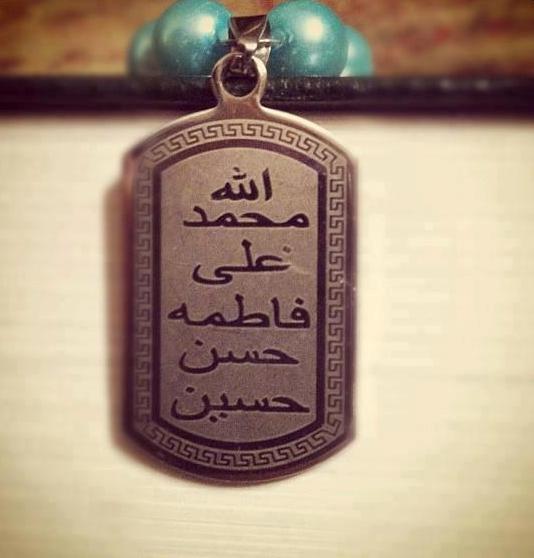
The ahl al-sunna wa'l-Jama'a maintains that this verse (33:33)was revealed for the wives of the Prophet (S.A.W.). They derive their proof from the context of the preceding and following verses. According to their claims, Allah therefore removed impurity from the wives of the Prophet and purified them completely. Among them are those who add to the [list of the] wives of the Prophet, 'Ali, Fatima, al-Hasan and al-Husayn. But the truth, according to what has been transmitted, as well as according to reasoning, logic and history, refutes this explanation. [This is] because the ahl al-sunna narrate in their Sahihs that the verse was revealed regarding five people namely: Muhammad, 'Ali, Fatima, al-Hasan and al-Husayn, and that the Prophet of Allah (S.A.W.) identified them and his noble self as being referred to by the noble verse when he gathered 'Ali, Fatima, al-Hasan and al-Husayn with him under the cloak. He said: "O Allah! These are my household, so cleanse them of all impurity and purify them completely.”
This narration has been reported by a large majority of Sunni scholars. I’ve listed [some of] them:
1.
Muslim in his Sahih, in "The Chapter on the Merits of the
Prophet's household": Vol. 2, p. 368.
2. Al- Tirmidhi in his Sahih; Vol. 5, p. 30.
3. Al-Musnad, Imam Ahmad b. Hanbal; Vol. 1, p. 330.
4. Al-Mustadrak, al- Hakim; Vol. 3, p. 123.
5. Al-Khas'ais, Imam al-Nasa'i; p. 49
6. Talkhis, al-Dhahabi; Vol. 2, p. 150.
7. Mu'jam, al-Tabrani; Vol. 1, p. 65.
8. Shawahid al-Tanzil, Hakim al-Haskani; Vol. 2, p. 11.
9. Al-Bukhari in his Greater History; Vol. 1, p. 69.
10. Al-Isaba, Ibn Hajar al-Asqalani; Vol. 2, p. 502.
11. Tadhkira al-Khawas, Ibn al-Jawzi; p. 233.
12. Tafsir of al-Fakhr al-Razi; Vol. 2, p. 700.
13. The Fountains of Love, al-Qanduzi al-Hanafi; p. 107.
14. Manaqib of al-Khawarizmi, p. 23.
15. Al-Sira of al-Halabi, Vol. l3, p. 212.
16. Al-Sira of al-Dihlaniya; Vol. 3, p. 329.
17. Asad al-Ghaba, Ibn al-Athir; Vol. 2, p. 12.
18. Tafsir of al-Tabari; Vol. 22, p. 6.
19. Al-Dur al-Manthur, al-Suyuti; Vol. 5, p. 198.
20. Ta'rikh of Ibn Asakir; Vol. 1, p. 185.
21. Tafsir al-Kashshaf , al-Zamakhshari; Vol. 1, p. 193
22. Ahkam al-Qur'an , Ibn al-Arabi; Vol. 2, p. 166.
23. Tafsir al-Qurtubi, Vol. 14, p. 182.
24. Al-Sawa'iq al-Muhriqa of Ibn Hajar, p. 85.
25. Al-Isti'ab, Ibn Abd al-Barr; Vol. 3, p. 37.
26. Al-'Aqd al-Farid, Ibn 'Abd Rabbih; Vol. 4, p. 311
27. Muntakhab Kanz al-'Ummal; Vol. 5, p. 96.
28. Masabih al-Sunna, al-Baghawi, Vol. 2, p. 278.
29. Asbab al-Nuzul, al-Wahidi; p. 203.
30. Tafsir of Ibn Kathir; Vol. 3, p. 483.